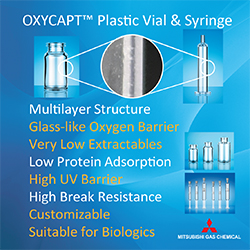Aptinyx Completes Enrollment in Phase 2b Study of NYX-2925 in Painful Diabetic Peripheral Neuropathy
Aptinyx Inc. recently announced the completion of enrollment in the company’s ongoing Phase 2b study of NYX-2925 for the treatment of painful diabetic peripheral neuropathy (DPN). Patients recently enrolled in the study are completing the 12-week treatment period and 30-day safety follow-up period. The company expects to report results from the study in early to mid 2Q 2022.
“Today’s milestone represents an exciting achievement as we advance the development of NYX-2925 for the treatment of painful DPN,” said Norbert Riedel, PhD, Chief Executive Officer of Aptinyx. “Despite a difficult environment for the conduct of clinical studies in the midst of a pandemic, our team’s stellar efforts and execution have completed enrollment on schedule. We believe this reflects the high interest from patients and physicians in a new treatment option with the potential to alleviate pain and avoid the harmful side effects and risk of addiction in current therapies. We look forward to completing the study and reporting results next year, which, if positive, would support the late-stage clinical development of NYX-2925 in painful DPN. This readout will be the first of the multiple Phase 2 data catalysts we expect across our development pipeline over the next 24 months.”
The Phase 2b study is evaluating the efficacy and safety of NYX-2925 in patients with advanced painful DPN. The primary endpoint in the study is the change from baseline in weekly average daily pain score over a 12-week period as reported on the 10-point numeric rating scale (NRS).
The Phase 2 study is a randomized, double-blind, placebo-controlled study designed to evaluate the efficacy and safety of NYX-2925 in patients with advanced painful DPN. Following a screening period, eligible patients are randomized to receive oral doses of NYX-2925 50 mg or placebo once daily over the treatment period. The primary endpoint in the study is the change from baseline in weekly average daily pain score over a 12-week period as reported on the 10-point numeric rating scale (NRS). Multiple secondary and exploratory endpoints related to pain and patient quality of life are also evaluated. More information about this study can be found on clinicaltrials.gov (NCT04146896).
NYX-2925 is a novel oral NMDA receptor positive allosteric modulator currently in Phase 2 clinical development for the treatment of chronic pain. In clinical studies, NYX-2925 has demonstrated activity that affects central pain processing, resulting in alleviation of pain and other symptoms associated with chronic pain conditions. In Phase 1 and Phase 2 clinical studies, NYX-2925 has exhibited a favorable safety and tolerability profile across a wide dose range. The US FDA has granted Fast Track designation to Aptinyx’s development of NYX-2925 for the treatment of neuropathic pain associated with DPN.
Neuropathic pain, associated with various conditions, affects an estimated 7% to 9% of the US population. Individuals suffering from this condition, regardless of the underlying disorder, are currently treated with a variety of therapies including antidepressants, anticonvulsants, and opioids. These medications offer inadequate efficacy for a large proportion of patients, are often poorly tolerated due to side effects, and in some cases are associated with abuse.
Painful DPN is one of the largest neuropathic pain conditions. An estimated 7.5 million people in the US suffer from this condition, which develops in 60% to 70% of people with diabetes when chronically high glucose levels damage nerves and impair transmission of information between the central nervous system and other parts of the body. Patients suffering from DPN may also experience sensory loss, leading to difficulties with balance, coordination, and walking.
Aptinyx Inc. is a clinical-stage biopharmaceutical company focused on the discovery, development, and commercialization of proprietary synthetic small molecules for the treatment of brain and nervous system disorders. Aptinyx has a platform for discovery of novel compounds that work through a unique mechanism to modulate—rather than block or over-activate—NMDA receptors and enhance synaptic plasticity, the foundation of neural cell communication. The company has three product candidates in clinical development in central nervous system indications, including chronic pain, post-traumatic stress disorder, and cognitive impairment. Aptinyx is also advancing additional compounds from its proprietary discovery platform, which continues to generate a rich and diverse pipeline of small-molecule NMDA receptor modulators with the potential to treat an array of neurologic disorders. For more information, visit www.aptinyx.com.
Total Page Views: 730













